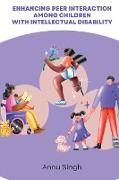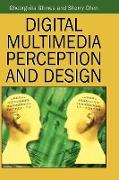Enhancing Peer Interaction Among Children with Intellectual Disability
BücherAngebote / Angebote:
Children are most beautiful and unique creation of God endowed with the numerous
abilities and enormous potential. During the course of development, the physical, cognitive,
language and psycho-social capacities of children unfolds and extends the new frontiers of
knowledge, opportunities and possibility. The innate factors and the societal influences help
children to achieve maximum development of their potential in different arenas of life and with
the passage of time they become the fully functioning adults equipped with essential skills and
abilities required for a successful life. But the journey of children who are deficient in some of
the abilities is not same as the typically developing children as their deficiencies or limitation
interferes with their pace of development and they could not meet the expectations of society.
Fundamentally, the children with deficiencies are visibly and functionally different from
the typical children, their developmental milestones are delayed and even restricted in some
cases, different pace of learning, poor adaptive skills, poor social skills, complete or partial
dependence on others, poor socialization and poor self-concept affect their quality of life to a
great extent. To achieve their full potential based on their residual abilities, they need different
approaches and strategies of teaching at home and school along with some assistive
technologies. Similarly, in the social front, they need special attention and assistance of parents,
siblings, teachers, peers and other members of society. These children are identified with
different names like 'children with disability', 'exceptional children', 'children with special
needs' 'children with different abilities', 'children with significant disability', 'children with
diverse abilities.
Disability is one of the most misunderstood terms and in lay vernacular it is often
interchangeably used for 'impairment' or 'handicapped'. According to WHO & World Bank
(2011), defining disability is a very complicated task as it is very "complex, multidimensional, contested and dynamic". In its initial attempt to define disability, WHO proposed a three-fold definition of impairment, disability, and handicap stating that "an impairment is any loss or abnormality of a psychological, physiological or anatomical structure or function, a disability is any restriction or lack (resulting from an impairment) of ability to perform an activity in the manner or within the range considered normal for a human being, a handicap is a disadvantage
for a given individual, resulting from an impairment or a disability, that prevents the fulfilment
of a role that is considered normal (depending on age, sex, social and cultural factors) for that
individual" WHO (1976).
Folgt in ca. 10 Arbeitstagen




